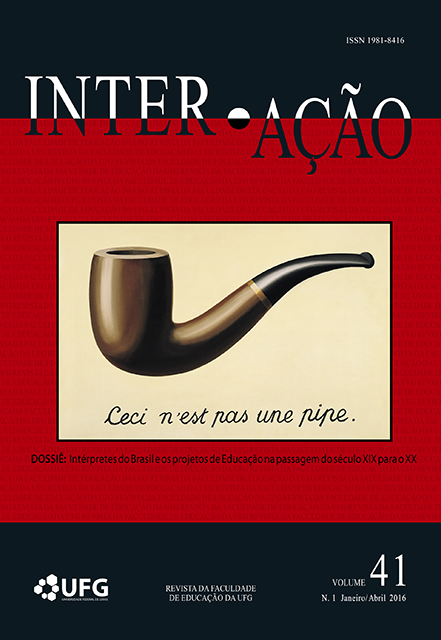FLORESTAN FERNANDES – UM INTÉRPRETE DO BRASIL NO DIÁLOGO CRÍTICO COM OS EDUCADORES ESCOLANOVISTAS
DOI :
https://doi.org/10.5216/ia.v41i1.39415Mots-clés :
Florestan Fernandes, escolanovistas, escola públicaRésumé
O texto analisa a contribuição de um dos principais intérpretes do Brasil, o sociólogo Florestan Fernandes, para se pensar os desafios educacionais ensejados pelas transformações na sociedade brasileira na transição do século XIX para o século XX, a partir do diálogo estabelecido entre ele e os educadores escolanovistas. Esses educadores, especialmente Fernando de Azevedo e Anísio Teixeira, tiveram atuação destacada nos debates e reformas educacionais ocorridas entre os anos de 1920 e início de 1960. Florestan Fernandes articulou sua análise acerca da formação social brasileira com os desafios para a educação pública no Brasil, empreendendo uma análise crítica acerca das propostas dos representantes da escola nova no Brasil. A diferença fundamental entre Florestan Fernandes e os renovadores diz respeito ao que Fernandes (1989) denominou de “consciência utópica” desses educadores, por acreditarem ser possível desencadear no Brasil uma revolução educacional burguesa. Destarte, o texto procura abordar os principais aspectos das críticas realizadas por Florestan Fernandes sobre a forma como os grupos de intelectuais pioneiros responderam às questões da escola pública, compondo uma significativa contribuição à temática educacional, que inspira reflexões na área até a atualidade, uma vez que os desafios por ele identificados em suas raízes históricas não foram superados.Téléchargements
Téléchargements
Publié-e
Comment citer
Numéro
Rubrique
Licence
A Inter-Ação utiliza como base para transferência de direitos a licença Creative Commons Attribution 4.0 para periódicos de acesso aberto (Open Archives Iniciative - OAI). Por acesso aberto entende-se a disponibilização gratuita na Internet, para que os usuários possam ler, baixar, copiar, distribuir, imprimir, pesquisar ou referenciar o texto integral dos documentos, processá-los para indexação, utilizá-los como dados de entrada de programas para softwares, ou usá-los para qualquer outro propósito legal, sem barreira financeira, legal ou técnica.
Autores que publicam neste periódico concordam com os seguintes termos:
1) Autores mantém os direitos autorais e concedem à revista o direito de primeira publicação, com o trabalho simultaneamente licenciado sob a Licença Creative Commons Attribution que permite o compartilhamento do trabalho com reconhecimento da autoria e publicação inicial nesta revista.
2) Autores têm autorização para assumir contratos adicionais separadamente, para distribuição não-exclusiva da versão do trabalho publicada nesta revista (ex.: publicar em repositório institucional ou como capítulo de livro), com reconhecimento de autoria e publicação inicial nesta revista.
3) Autores têm permissão e são estimulados a publicar e distribuir seu trabalho online (ex.: em repositórios institucionais ou na sua página pessoal) a qualquer ponto antes ou durante o processo editorial, já que isso pode gerar alterações produtivas, bem como aumentar o impacto e a citação do trabalho publicado.















